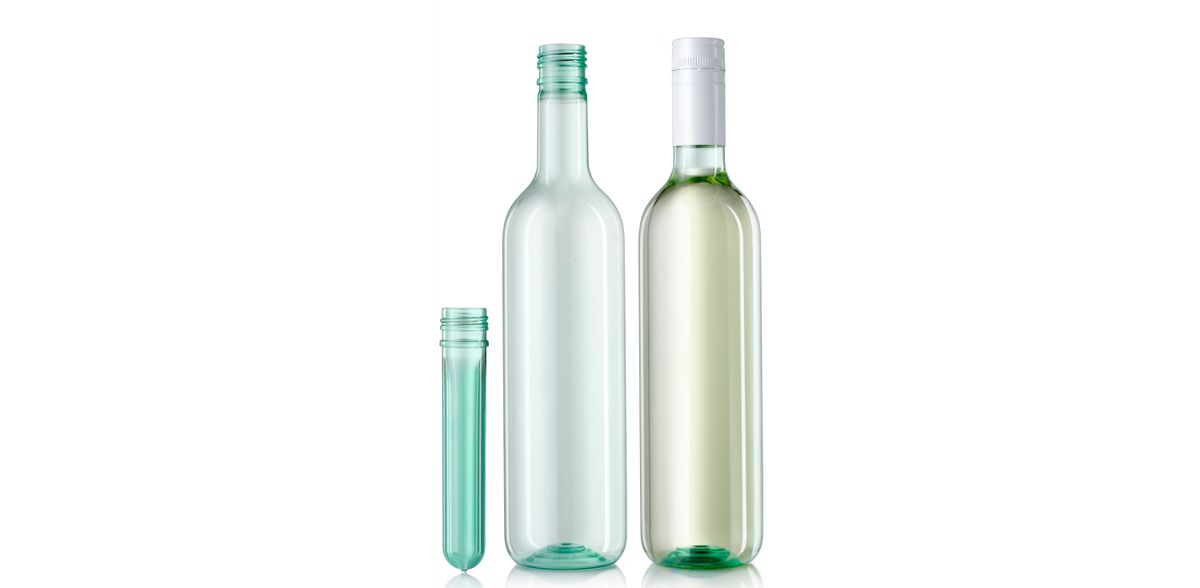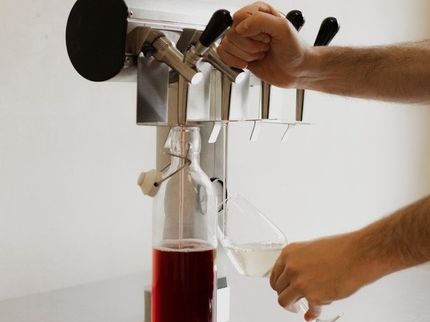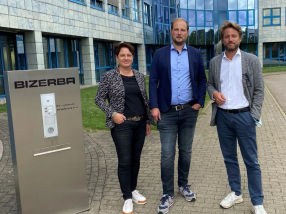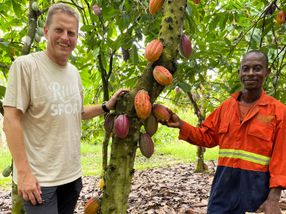PET wine bottle from ALPLA saves up to 50 percent CO2
Launch for 0.75-liter bottle in Austria with white wine from Wegenstein
Advertisement
Safe, affordable and sustainable: plastic packaging specialist ALPLA is launching a recyclable wine bottle made from PET. The bottle weighs only around an eighth of the weight of glass, reduces theCO2 footprint by up to 50 percent and provides price savings of up to 30 percent. It can be made from 100% recycled PET material (rPET). The packaging solution is now available in 0.75 liter and 1 liter bottle sizes and is already being used in Austria by pilot customer and development partner Wegenstein.

The PET wine bottle from ALPLA weighs only around an eighth of the weight of the glass alternative, thus saving CO2 and costs
Wegenstein
The internationally active packaging specialist ALPLA has added a PET wine bottle to its range. The 0.75 liter bottle weighs just 50 grams - around eight times less than the glass alternative. The first white wine bottles from the Wegenstein winery have recently entered circulation on the Austrian wine market, making them part of the Europe-wide bottle-to-bottle cycle. The sustainable solution reducesCO2 consumption by 38 percent compared to the glass alternative - and without any rPET content. The PET bottle is now also available in a 1-liter version. ALPLA is planning to produce several million units per year and solutions made from 100% rPET as early as 2025.
"PET is lightweight, unbreakable, recyclable and can be molded with low energy requirements. This makes the plastic the ideal packaging solution. Wine producers can improve their carbon footprint and reduce their costs," emphasizes Daniel Lehner, Global Sales Director Food & Beverage at ALPLA. The plastic packaging meets all quality requirements, is available as a transparent or green bottle and is suitable for all types of wine.
Sustainable, cost-effective and compatible
The lower material consumption and energy-saving processing reduceCO2 consumption. The use of rPET further increases the reduction. Even with 30% rPET, 43% is saved, while the ecological footprint of the 100% rPET solution is even halved at minus 50%. ALPLA provides the high-quality recycled material from its own ALPLArecycling recycling plants. The low weight of the packaging also has positive effects during transportation. Added to this is the cost advantage. Depending on the requirements, PET wine bottles from ALPLA are up to 30 percent cheaper than glass bottles.
The sustainable packaging solution works with conventional metal screw caps, is compatible with the wine producers' bottling lines and thus ensures flexibility. At Wegenstein, the PET bottles are filled on the same lines as the glass bottles. "The bottle is perfectly matched to the filling and transportation processes. The close cooperation with the Wegenstein team has significantly accelerated the market launch," reports Sebastian Rosenberger, Project Manager at ALPLA. "The PET bottle delivers what it promises. It is visually appealing, ensures our quality and is practical. We are making an innovative offer to consumers who care about our environment and our climate," explains Herbert Toifl, Managing Director of Weinkellerei Wegenstein.
Note: This article has been translated using a computer system without human intervention. LUMITOS offers these automatic translations to present a wider range of current news. Since this article has been translated with automatic translation, it is possible that it contains errors in vocabulary, syntax or grammar. The original article in German can be found here.


































































